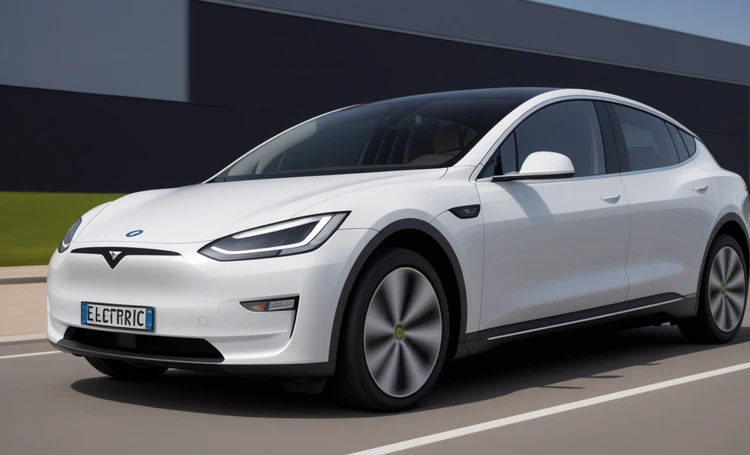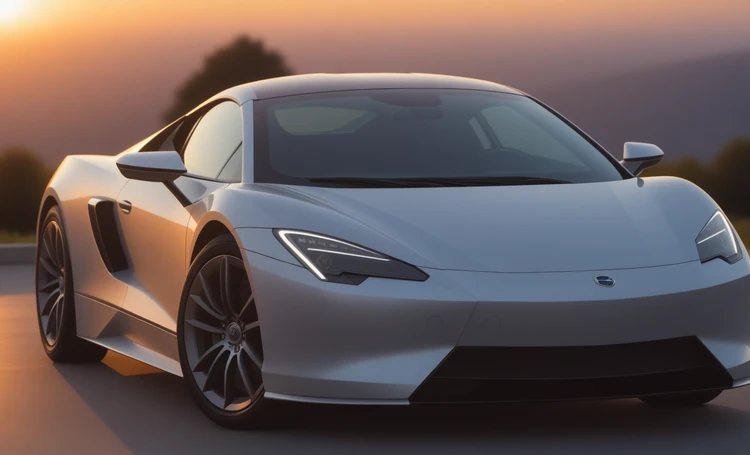🌟 New wave of mobility: alternative energy sources for cars
Every day the world becomes more saturated with innovations in the automotive industry, and alternative energy sources are taking center stage. Now, more than ever, the issue of reducing harmful emissions and switching to environmentally friendly transport is becoming relevant. Choose accessories for an environmentally friendly car here so that your trip is not only comfortable, but also safe for the environment.
🌿 Types of alternative energy for cars
🔋 Electricity
The most common and discussed source of alternative energy for cars is electricity. Electric vehicles offer zero emissions when in use, making them an ideal option for environmentally conscious drivers.
Pros:
- Zero emissions in use
- Low cost of operation
- Quiet and smooth engine operation
Minuses:
- Relatively short range
- The need for a developed infrastructure of charging stations
🌞 Solar energy
Solar panels on car roofs are another promising technology that can use a renewable energy source to recharge batteries while driving.
Pros:
- Renewable energy source
- Can be used in combination with other types of energy
Minuses:
- Dependency on weather conditions
- So far insufficient efficiency to completely replace traditional sources
🍃 Hydrogen
Hydrogen fuel cells represent one of the most promising trends in the field of alternative energy. They produce electricity on board the car by combining hydrogen and oxygen.
Pros:
- High energy efficiency potential
- Fast refueling
Minuses:
- High cost of hydrogen production
- Insufficient number of gas stations
🛠 Technological innovations and breakthroughs
The alternative energy industry does not stand still, and every year more and more new solutions appear that make the use of non-traditional energy sources more and more practical and convenient for the end user.
Hybrid technologies
The combination of a traditional internal combustion engine with an electric motor can significantly reduce fuel consumption and carbon dioxide emissions.
Wireless charger
The development of inductive energy transfer technologies opens up the possibility of charging electric vehicles without the need to connect cables.
Smart energy networks
Integrating cars with smart energy grids could allow their batteries to be used to store excess electricity, improving energy efficiency.
💡 Prospects and challenges on the way to alternative energy
The transition to alternative energy sources for cars is inevitable, but it is associated with a number of technical and infrastructural challenges.
Infrastructure development
Creating a global network of hydrogen charging stations and refueling stations is a key aspect that will require significant investment and time.
Cost and Availability
Reducing production costs and increasing the availability of alternative vehicles to a wider range of consumers remains an important challenge for manufacturers.
Legal regulation
It is necessary to develop a legislative framework that will regulate the use and maintenance of alternative vehicles, as well as their interaction with energy systems.
🌐 Impact on the global economy and ecology
Economic prospects
The transition to alternative energy opens up new economic opportunities, from creating jobs to reducing dependence on fossil fuels.
Ecological effect
A significant reduction in environmental pollution and greenhouse gas emissions will lead to an improvement in the environmental situation in the world.
Table: Comparison of alternative energy sources for cars
| Energy source | Advantages | Flaws | Development prospects |
|---|---|---|---|
| Electricity | Zero emissions, low operating costs | Limited range | Increasing battery capacity |
| Solar energy | Renewable, environmentally friendly | Weather dependent | Improving panel efficiency |
| Hydrogen | High energy efficiency, fast refilling | High production cost | Expansion of gas station infrastructure |
🌿 Impact on society and consumer culture
The adoption of alternative energy sources for vehicles will significantly change public attitudes and consumption habits.
Education and awareness
Increased awareness and educational programs will make the choice in favor of alternative energy an informed and popular choice among the population.
Lifestyle change
With the advent of environmentally friendly cars, people's lifestyles will also change, priorities will shift towards sustainable consumption and environmental values.
Cultural influence
Eco-friendly transport can become part of the culture and a symbol of a new generation who express their concern for the planet through their choice of transport.
🛠️ Technological innovations and developments
The introduction of alternative energy into the automotive industry stimulates the development of new technologies and solutions.
Breakthrough materials
Research into new materials such as carbon nanotubes could significantly improve the efficiency of energy consumption and energy storage.
Control systems and AI
Integration of artificial intelligence systems to optimize energy consumption and improve vehicle control.
Blockchain and Transparency
The use of blockchain technology can ensure transparency and adherence to environmental standards in the production and operation of cars.
🌍 International cooperation and politics
The global transition to alternative energy requires concerted action at the international level.
International agreements
Conclusion of international agreements to reduce the carbon footprint and transition to environmentally friendly energy sources.
Political will and support
Active participation of states in the formation of policies in the field of alternative energy and provision of incentives for the development of the industry.
Manufacturer cooperation
Joining the efforts of large automobile companies to develop and implement new environmental standards and technologies.
📈 Results and prospects
The transition to alternative energy sources for cars opens a new era in the transport industry. This is not only a response to an environmental challenge, but also an opportunity for a technological breakthrough and a change in consumer culture. It is important that every step towards alternative energy is accompanied by the support of society and the state, the development of infrastructure and the legal framework. Considering all the benefits and challenges, alternative energy for cars promises to be not only a reality, but also an integral part of the future.




